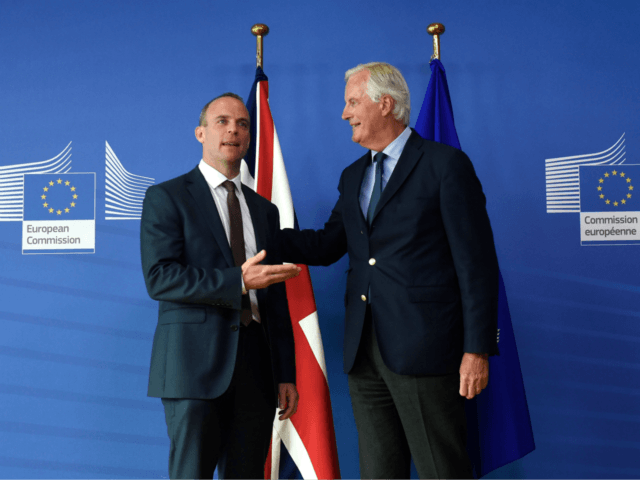The European Union (EU) is preparing to welcome Theresa May’s Chequers “soft Brexit” plan, which keeps the UK tied to all of the bloc’s trade rules, whilst pushing hard to keep the Irish border open.
The so-called “carrot and stick” approach will be pushed by EU leaders at a meeting in Salzburg, Austria, later this month, The Guardian reports, and comes after the bloc’s negotiators indicated they are prepared to agree on a unique trade deal.
However, the Chequers plan is deeply unpopular with the British public and has been described as “the worst of both worlds” by anti-Brexit Labour campaigners and “less popular than the poll tax” by a pro-EU former Cabinet minister just this week.
Early in negotiations, Mrs May committed to keeping the entire UK tied to the bloc’s Single Market and its rules if a way to keep the Irish border open is not found, and EU leaders remain keen to hold her to her word.
Last week, negotiator Michel Barnier hinted the issues of the border could still stop a deal being struck and demanded “urgent” work on proposals.
One EU diplomat told The Guardian: “The first part will say that the Chequers proposals were welcomed and that we are talking about the future: an unprecedented deal which will be our best effort at an internal market in goods.
“That is all true and it is something for her [May] to have at [Conservative Party] conference, that she needs.
“The second statement will be a very stern warning. It is clear that the British game plan is to push this back, but they need to step on it now, and stop playing around.”
Meanwhile, the UK government hinted they would continue to appeal directly to individual member states to push for a generous deal in the face of the hard line taken by unelected bureaucrats in Brussels.
“The negotiations are taking place with the commission, we have always respected that fact,” a Downing Street spokesman said.
“But equally this is a decision that at the end of the process will be taken at a political level by the European Council, so you can obviously expect a continued and strong engagement with fellow European countries.”

COMMENTS
Please let us know if you're having issues with commenting.